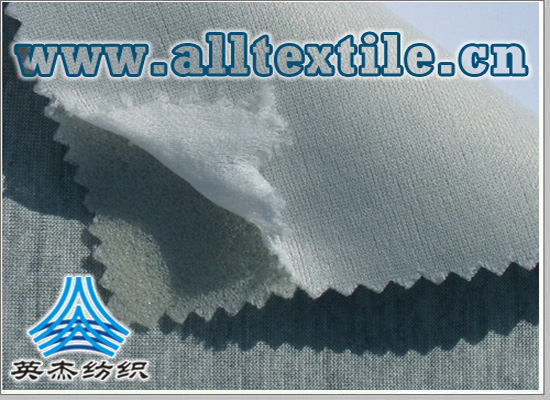Application of aramid III materials in the field of bulletproof equipment
Aramid III materialApplication in the field of bulletproof equipment
Abstract: The advancement of protective materials determines the advancement of protective equipment. The excellent quality of new aramid III bulletproof materials is of great significance to improving the efficiency, comfort and lightweight of personal protective equipment. This paper briefly introduces the advantages and disadvantages of commonly used soft bulletproof materials at home and abroad. Through comparative analysis, it focuses on analyzing the excellent comprehensive properties of aramid III. The application example test data of aramid III in bulletproof equipment demonstrates its application in bulletproof equipment. It has outstanding advantages in performance and lightweight, and it is expected that aramid III materials will occupy the top spot in the field of high-end soft bulletproof equipment.
Keywords: Aramid II, Aramid III, Heterocyclic aramid, Ultra-high molecular weight polyethylene, Soft bulletproof material

1. Introduction
“If a worker wants to do his job well, he must first sharpen his tools.” The development of personal protective equipment closely follows the development of weapons and relies heavily on the development of protective materials. From metal materials to ceramic materials, composite materials, high-performance fiber materials, shear thickening materials and nanomaterials, protective equipment materials have been developing in the direction of efficiency, comfort, and lightweight, which is important for continuously improving the mobility of combatants, Combat capability and survivability are crucial.
According to surveys, the protective equipment commonly distributed by our country’s military and police still has problems such as heavy weight and poor comfort, resulting in a low wearing rate. Failure to wear it means there is no protection. The simulation results of the battlefield damage reduction model show that the weight, thickness, softness and other indicators of protective equipment directly affect the mobility of military police, and the improvement of protective equipment performance is limited by the performance level of protective materials. In our country, only by realizing the localization of high-performance protective materials can we truly improve the quality of our country’s military and police protective equipment.
2. Introduction to commonly used bulletproof fibers
Police body armor is explained in the Ministry of Public Security standard “GA141-2010 Police Body Armor” as a garment that can absorb and dissipate the energy of warheads, prevent penetration, reduce blunt injuries, and effectively protect the protective parts of the human body [1 ]. Soft body armor uses high-performance fiber as the main bulletproof material, which is quite soft. Its bulletproof mechanism is to spread or dissipate energy through fiber strain rupture, slow-release shock waves, warhead deformation, etc., and finally the fabric “grabs the bullet” ” Acts as bulletproof. The protection level of soft body armor that complies with the “GA141-2010 Police Body Armor” standard is divided into levels 1 to 3. If it is necessary to upgrade the ballistic protection level to level 4 to 6, it is generally necessary to install high protection on the outside of the soft bulletproof layer. Grades of bulletproof inserts, or bulletproof inserts used alone, are used to enhance the bulletproof performance of body armor in specific areas. Bulletproof inserts generally use high-performance fiber laminates, metal plates, high-performance fiber and ceramic material composites, etc., and are relatively thick. Therefore, soft body armor is an important basic equipment for military and police personal protection, and bulletproof materials play a decisive influence on the performance of body armor.
At present, the high-performance bulletproof fibers commonly used at home and abroad mainly include aramid and ultra-high molecular weight polyethylene.
 (1) Aramid Series
(1) Aramid Series
Aramid is a fiber spun from aromatic polyamide resin. It was first successfully developed by DuPont in the United States in 1972. Subsequently, Russia, the Netherlands, Japan and my country have all developed high-performance aramid fibers with elastic properties.
my country divides aramid fiber into [2]:
·Aramid I, also called aramid 14, refers to polyparabenzamide (PBA) fiber;
·Aramid II, also called aramid 1414, refers to polyparaphenylene terephthalamide (PPTA) fiber;
·Aramid III, also known as heterocyclic aramid, refers to heterocyclic aromatic polyamide fiber.
Aramid composite bulletproof material is a type of bulletproof composite material made of aramid or fabric-reinforced resin matrix. The most commonly used one is aramid II produced by high-speed dry and wet spinning process. The main brand products are:
·Kevlar○R series from DuPont of the United States;
·Twaron○R series of Teijin Company of Japan (owned by Akzo Company of the Netherlands before 2000);
·Russian Terlon○R series;
·Taparan○R, Staramid F-2, etc. from China.
The color of aramid II fiber is light golden yellow, as shown in Figure 1.
The main disadvantages of aramid II are: poor light resistance. Photodegradation will occur when exposed to visible light and ultraviolet light, resulting in a decrease in mechanical properties and color changes. Moreover, its compressive strength is low and it has strong hygroscopicity. After absorbing moisture, the fiber becomes weaker and needs to be sealed. save.
Aramid III, also known as heterocyclic aramid, its excellent quality has greatly improved the performance of high-performance fiber composite bulletproof materials. With the breakthrough of domestic key technologies and the continuous advancement of the industrialization process in recent years, my country has begun to Use aramid III in military and police protective equipment.
(2) Ultra-high molecular weight polyethylene fiber
Ultra-high molecular weight polyethylene (UHMWPE) fiber is the third high-performance fiber to achieve mass market application after carbon fiber and aramid [3]. The material was first developed by the Dutch company DSM and patented in 1979. UHMWPE fiber has excellent mechanical properties, its strength and modulus are very high, and its density is the highest among high-performance fibers.beg. Due to the excellent comprehensive properties of aramid III, my country has widely used it in the national defense, aerospace and aviation industry.
7. Summary
“Whoever masters new materials controls the future.” In response to the increasingly severe anti-terrorism situation, our country has put forward higher requirements for the protection of personal protective equipment. The 2016 National Public Security Bureau Police Support Work Conference clearly pointed out that public security equipment must serve actual combat needs, which is directly related to the generation of public security organs’ combat effectiveness. It is necessary to vigorously promote the transformation of police equipment from “quantity” growth to “quality” leap. Make the equipped equipment “alive, move, and use” and promote the transformation of the equipment into actual combat effectiveness. The meeting required that the construction of police equipment should implement the concept of quality as life, promote the upgrading of the supply structure of the police equipment industry to the mid-to-high end, improve the localization level of police equipment, and create brand-name police equipment products with independent intellectual property rights and good market competitiveness. .
Domestic aramid III bulletproof equipment has outstanding advantages in bulletproof performance and lightweight, and is of great value to truly improve the performance of our country’s military and police bulletproof equipment. As the application potential of aramid III materials continues to increase and the industrialization process continues to advance, domestic aramid III is expected to occupy the highest point in the field of high-end soft bulletproof equipment.








